 | Robert Henry A. Bradley - 1871 - 96 pages
...these three reasons : 2 — 1. The increase of dexterity in every particular workman. 2. The saving of time which is commonly lost in passing from one species of work to another. 3. The invention of a great number of machines which facilitate and abridge labour, and enable one... | |
 | Virginia - 1872 - 750 pages
...Adam Smith. "First, the increase of dexterity in every particular workman; second, the saving of the time which is commonly lost in passing from one species...great number of machines which facilitate and abridge labor, and enable one man to do the work of many." These doctrines of political economy apply to the... | |
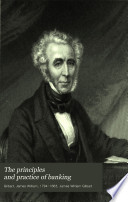 | James William Gilbart - Banks and banking - 1873 - 656 pages
...saving of time which is commonly lost in passing from one species of work to another ; and lastly, to the invention of a great number of machines which...labour, and enable one man to do the work of many." The increase of dexterity by constant practice is very observable in the practice of " casting up."... | |
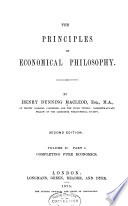 | Henry Dunning Macleod - Economics - 1875 - 556 pages
...saving of the time which is commonly lost in passing from one species of work to another; and lastly to the invention of a great number of machines which...labour, and enable one man to do the work of many. " First, the improvement of the dexterity of the workman necessarily increases the quantity of work... | |
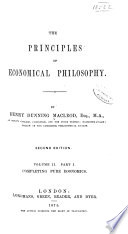 | Henry Dunning Macleod - Economics - 1875 - 574 pages
...circumstances : 1st, to the increase of dexterity in every particular workman ; 2ndly, to the saving of the time which is commonly lost in passing from one species of work to another ; and lastly to the invention of a great number of machines which facilitate and abridge labour, and enable one... | |
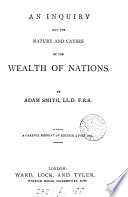 | Adam Smith - 1875 - 808 pages
...circumstances; first, to the increase of dexterity in every particular workman; secondly to the saving of the time which is commonly lost in passing from one species of work to another ; and lastly, to the invention of a great number of machines which facilitate and abridge labour, and enable one... | |
 | Dame Millicent Garrett Fawcett - Economics - 1876 - 364 pages
...of the division of Labour. Adam Smith says that " the third advantage of the division of labour is the invention of a great number of machines which...labour, and enable one man to do the work of many." Though Adam Smith perhaps exaggerated the importance of this advantage, there have been some very remarkable... | |
 | Henry Fawcett - Economics - 1876 - 672 pages
...2. The saving of the time which is commonly lost in passing from one species of work to another. 3. The invention of a great number of machines which facilitate and abridge labour, and enable ono man to do the work of many. The greatest influence no doubt is produced by the first of these causes,... | |
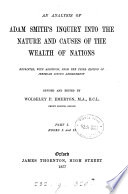 | Jeremiah Joyce - 1877 - 260 pages
...course not one where the dexterity of the workman is the greatest, p. 10. (2.) To the saving of the time which is commonly lost in passing from one species of work to another. It is impossible to pass very quickly from one kind of work to another. A country weaver, who cultivates... | |
 | William Stanley Jevons - Economics - 1879 - 158 pages
...workman. (2.) Saving of the time which is commonly lost in passing from one kind of work to another. (3.) The invention of a great number of machines, which...labour, and enable one man to do the work of many. There can be no doubt as to the increase of dexterity, which arises from practice. Any one who has... | |
| |